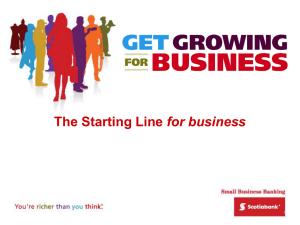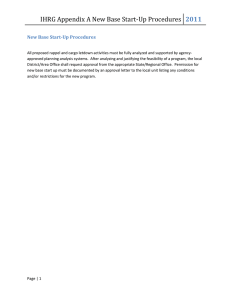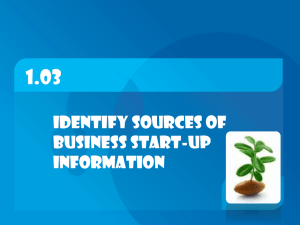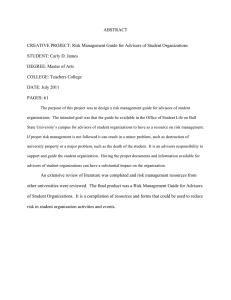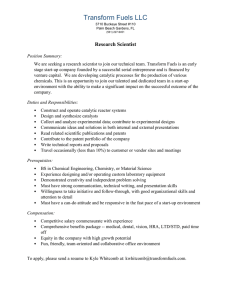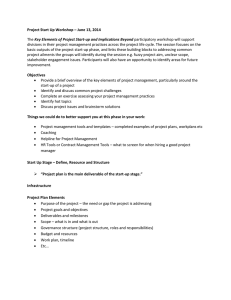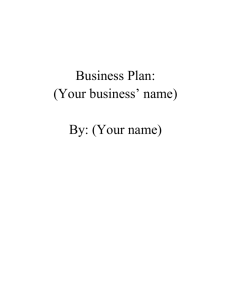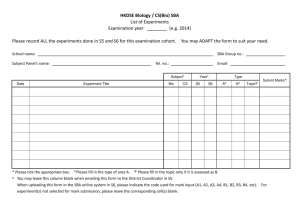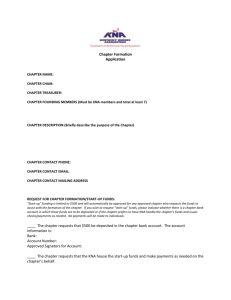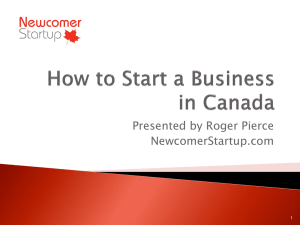Startup_CkLists
advertisement
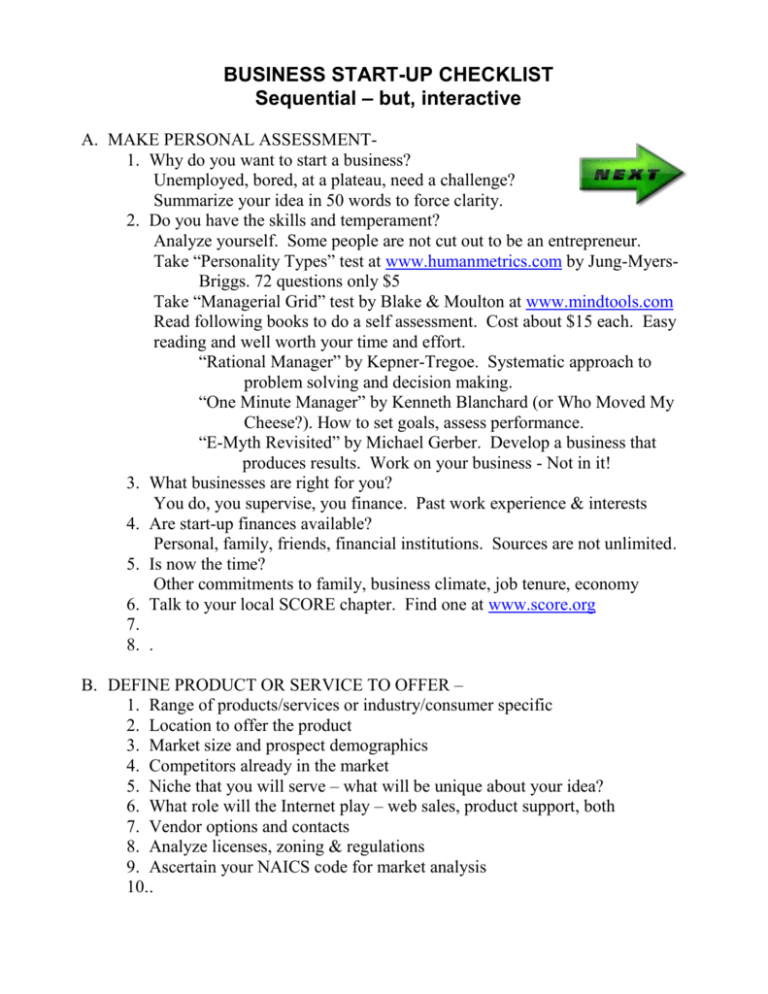
BUSINESS START-UP CHECKLIST Sequential – but, interactive A. MAKE PERSONAL ASSESSMENT1. Why do you want to start a business? Unemployed, bored, at a plateau, need a challenge? Summarize your idea in 50 words to force clarity. 2. Do you have the skills and temperament? Analyze yourself. Some people are not cut out to be an entrepreneur. Take “Personality Types” test at www.humanmetrics.com by Jung-MyersBriggs. 72 questions only $5 Take “Managerial Grid” test by Blake & Moulton at www.mindtools.com Read following books to do a self assessment. Cost about $15 each. Easy reading and well worth your time and effort. “Rational Manager” by Kepner-Tregoe. Systematic approach to problem solving and decision making. “One Minute Manager” by Kenneth Blanchard (or Who Moved My Cheese?). How to set goals, assess performance. “E-Myth Revisited” by Michael Gerber. Develop a business that produces results. Work on your business - Not in it! 3. What businesses are right for you? You do, you supervise, you finance. Past work experience & interests 4. Are start-up finances available? Personal, family, friends, financial institutions. Sources are not unlimited. 5. Is now the time? Other commitments to family, business climate, job tenure, economy 6. Talk to your local SCORE chapter. Find one at www.score.org 7. 8. . B. DEFINE PRODUCT OR SERVICE TO OFFER – 1. Range of products/services or industry/consumer specific 2. Location to offer the product 3. Market size and prospect demographics 4. Competitors already in the market 5. Niche that you will serve – what will be unique about your idea? 6. What role will the Internet play – web sales, product support, both 7. Vendor options and contacts 8. Analyze licenses, zoning & regulations 9. Ascertain your NAICS code for market analysis 10.. C. RESEARCH FINANCIAL OPTIONS1. Start from scratch as a new business – talk to friends, similar businesses 2. Become a franchise operator – talk to a franchise consultant 3. To buy an existing business – talk to a business broker 4. Assess personal resources you can provide: Assets, rights or licenses, cash to invest or contacts in the market 5. Take a personal financial inventory – talk to your banker as preliminary step 6. . 7. . D. PREPARE BUSINESS PLAN AS A ROADMAP – minimum content 1. Marketing research from B above 2. Operating preferences – how will you deliver (manufacture, assemble, resell, through representatives or do all yourself) 3. Financial parameters i. Source and Application of initial Start-up Funds ii. Projected Profit and Loss iii. Projected Cash Flow iv. Balance Sheet v. Break-even point of volume and timing 4. Personal compensation needsi. If part time ii. If full time 5. . 6. . E. Use all available FREE resources 1. SCORE advisors – local or nationally 2. SBA Business Planning Center in St. Paul 3. Internet online courses – SBA and SCORE 4. “A Guide to Starting a Business in Minnesota” 5. Networking groups, trade associations 6. Library, especially database Reference USA 7. . F. BUSINESS ORGANIZATION1. Select type of entity – sole proprietor/partnership/LLC/S Corp. 2. Register name with the state 3. Register Internet domain name 4. Prepare legal documents 5. Get ID numbers: Federal EIN, State Unemployment, Sales tax E. BUSINESS ORGANIZATION- continued 6. Protect intellectual property Patent – devise or process Copyright – printed material Trademark – logo, symbol Service mark – brand, logo 7. . 8. . G. ACQUIRE RESOURCES1. Transfer or re-title personal assets to the company 2. Setup bank accounts and credit card – separate from personal accounts 3. Close loan agreement 4. Make space lease 5. Acquire other assets 6. Build web site 7. Buy insurance 8. Identify advisors (complement your weaknesses): i. Legal counsel – as needed not on retainer ii. Accounting/tax – for bookkeeping, payroll or full service iii. Human resources – if you have employees iv. Advertising & promotion v. Insurance broker vi. Advisors – SCORE, family 9. Set up business accounting system 10.. H. SELECT STAFF1. Commit key management – contracts, stock 2. Build team – part time, full time, independent contractors 3. Resolve benefits package – retirement and health coverage (if any) 4. Check workman compensation need 5. Check OSHA regulations 6. Check Fair Employment laws 7. Check ERISA compliance – pension/401K/etc. 8. . 9. . I. PREPARE MARKETING PROGRAM 1. Pre-Opening i. Business cards ii. Stationery iii. Signage iv. Media announcements v. Finalize prospects listsTrade Associations Library - Reference USA Personal contacts & network 2. On-Going i. Trade shows/publications ii. Direct mail iii. Email or newsletters iv. Website v. Telephone/magazine directories vi. Build prospect lists 3. . 4. . 5. . J. COMMENCE OPERATIONS1. Make sales or solicit orders 2. Deliver product or services 3. Keep personal and business separate 4. Comply with tax and regulations 5. Prepare monthly financial statements 6. . 7. . K. ADD OMISSIONS TO THIS LIST FOR YOUR UNIQUE SITUATIONS1. 2. 3. 4. 5. End
